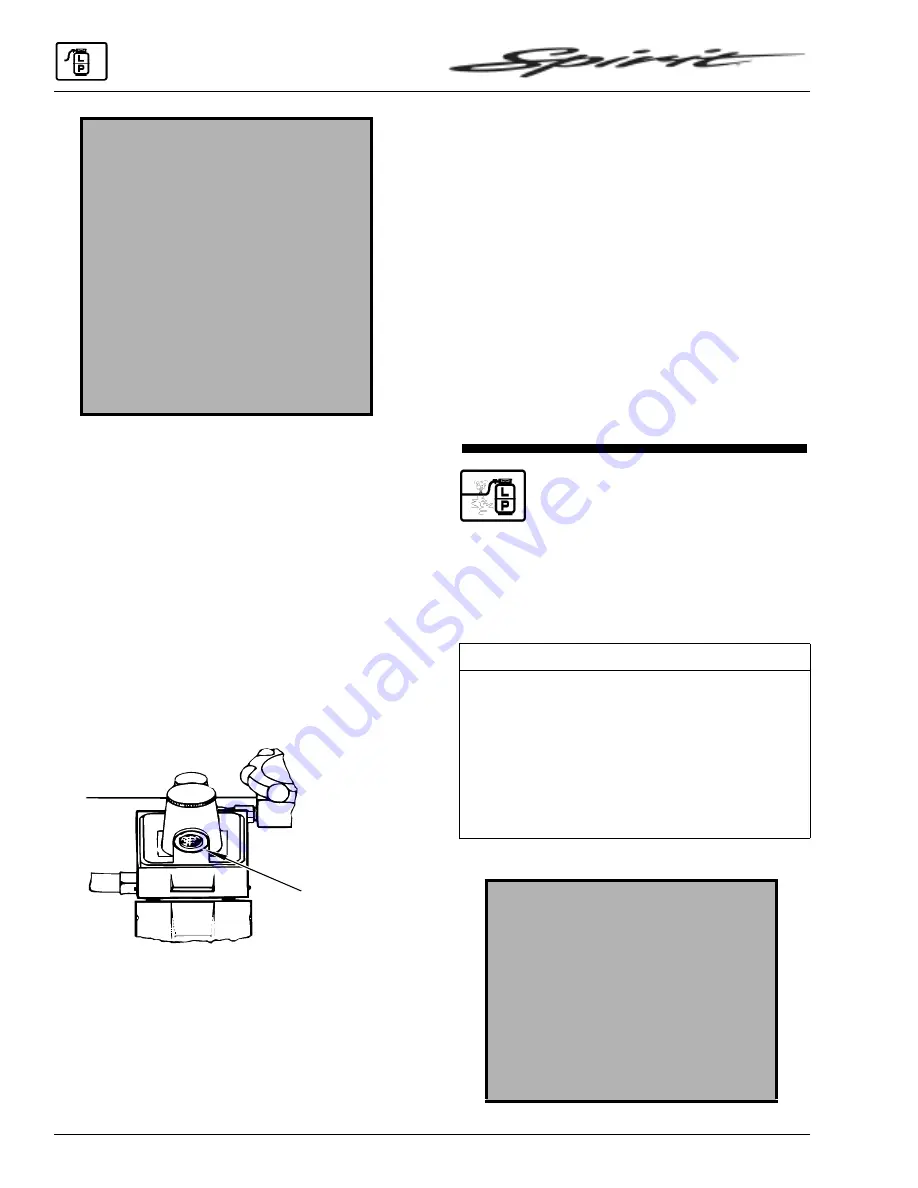
SECTION 5
LP GAS SYSTEM
5-4
Regulator freeze-ups are caused by the pres-
ence of moisture in fuel. This moisture will pass
through the cylinder valve and into the regulator
where it can freeze. Fuel producers, tank and bot-
tle manufacturers and LP gas dealers take every
precaution to reduce moisture, but sometimes
only a fraction of an ounce entering the tank can
cause problems. To help avoid the possibility of
freeze-up, always keep tank control valve closed
when not in use, even when tank is empty, to pre-
vent moisture from collecting on the inside.
If regulator freeze-up should occur, you may
attempt to thaw the regulator using a light bulb.
DO NOT USE AN OPEN FLAME OR HEAT
LAMP.
If moisture begins to cause problems, have
your LP gas dealer inject a small amount of dry
methyl alcohol in your tank (approximately one
once to 20 pounds or one pint to 100 gallons) to
help guard against regulator freeze-ups.
In very cold weather when a large volume of
gas is being used for heating, it is possible to ex-
perience a loss of gas pressure. At first, this prob-
lem may appear to be caused by a regulator
freeze-up, but is actually caused by failure of the
liquid gas to vaporize as fast as it is needed. As
the temperature becomes colder, it is increasingly
harder for the liquid LP gas to vaporize. At the
same time, the demand for LP to produce heat in-
creases to the point where the system cannot
maintain production.
The only solution to this problem is to reduce
the consumption of gas where possible. Adjust-
ing the temperature on the gas/electric refrigera-
tor may be a first step. Using less hot water will
help as well.
LP GAS LEAKS
The following label has been placed in the ve-
hicle near the range area. If you smell gas within
the vehicle, quickly and carefully perform the
procedures listed.
WARNING
Inspect the pressure regulator vent
hole periodically for blockage. If any
obstruction is apparent, have the regu-
lator serviced by your dealer or a qual-
ified LP gas service center.
LP gas regulators are installed with
the diaphragm vent facing downward.
Make sure that the regulator vent
always faces downward to minimize
vent obstruction which could result in
excessive pressure, causing a fire or
explosion.
LPG PRESSURE REGULATOR
(COVER OPEN)
Vent Hole
IF YOU SMELL GAS
1.
Extinguish any open flames, pilot lights and all
smoking materials.
2.
Do not touch electrical switches.
3.
Shut off the gas supply at the tank valve(s) or gas
supply connection.
4.
Open doors and other ventilating openings.
5.
Leave the area until odor clears.
6.
Have the gas system checked and leakage source
corrected before using again.
WARNING
Never use an open flame to test for
gas leaks. When testing for gas lines
leaks with a soapy water solution, DO
NOT use a detergent containing
ammonia or chlorine. These sub-
stances may generate a chemical
reaction causing corrosion to gas
lines, resulting in dangerous leak con-
ditions.



































